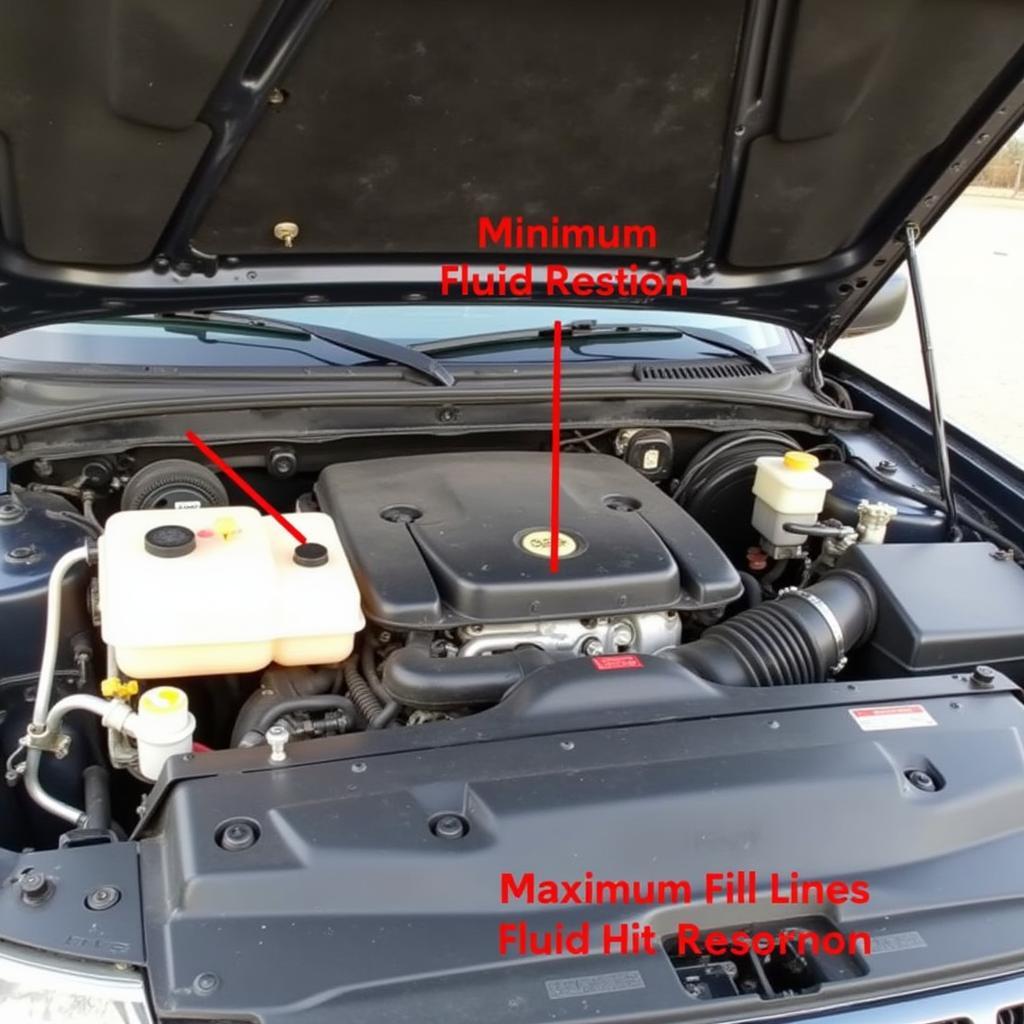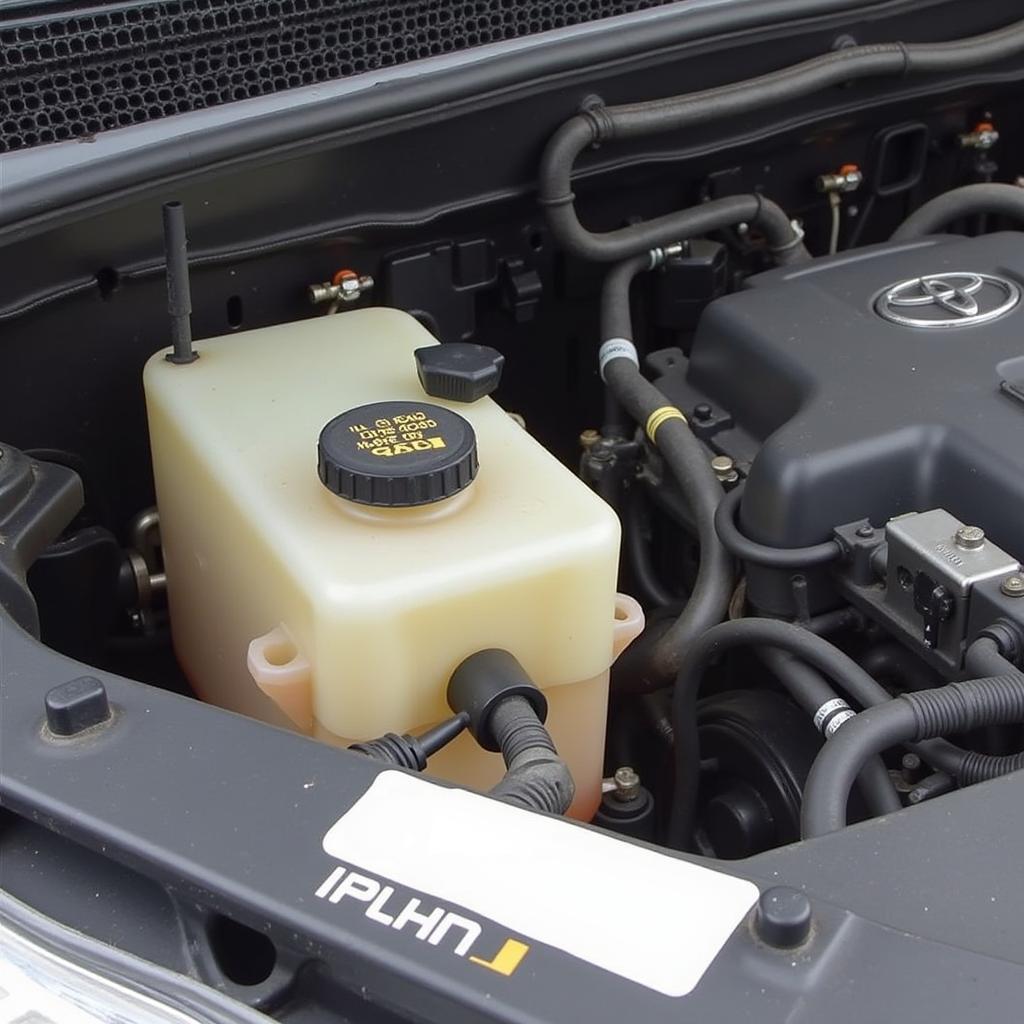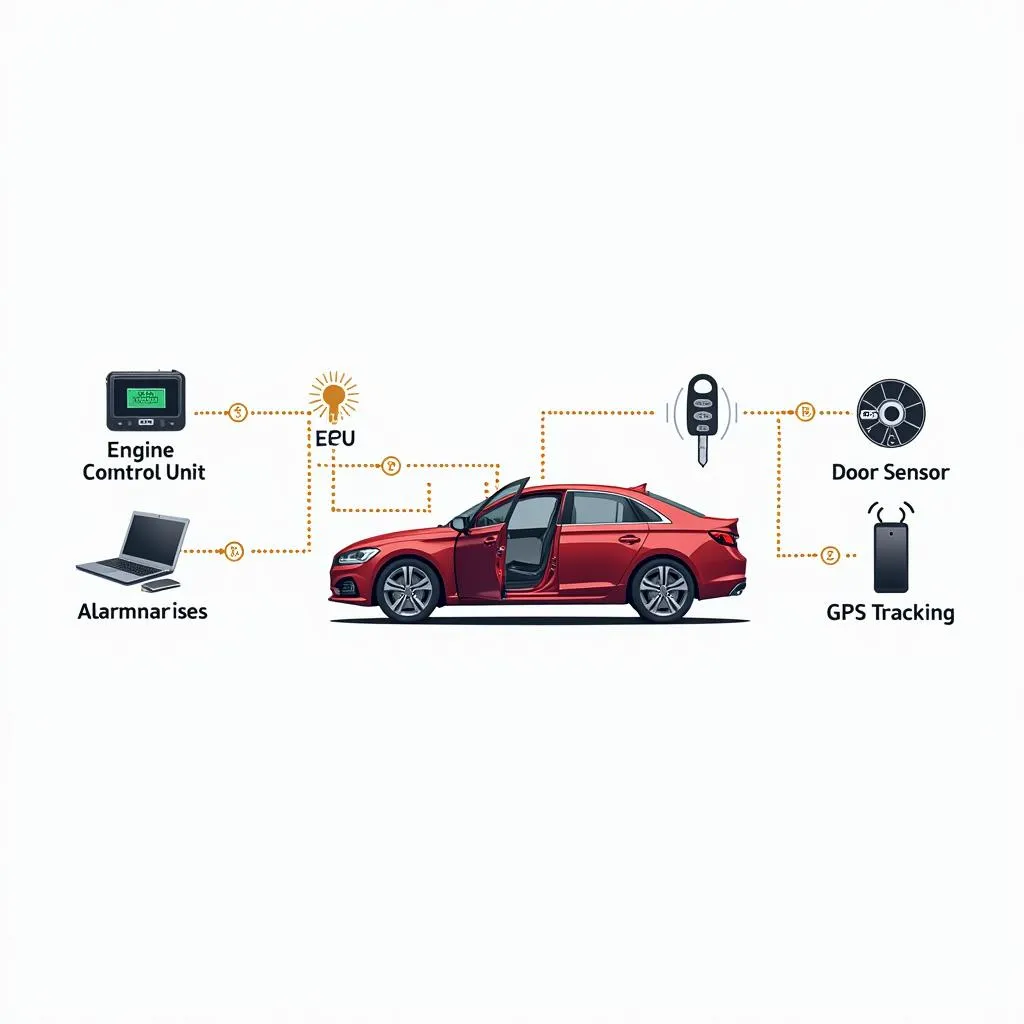If your 2002 Grand Cherokee’s brake warning light refuses to turn off, it’s a signal you shouldn’t ignore. This persistent light indicates a potential issue within your braking system, ranging from low brake fluid to more serious problems. Addressing this promptly is crucial for maintaining your safety and preventing further damage. This article provides a comprehensive guide to troubleshooting and resolving the “2002 Grand Cherokee brake warning light stays on” problem.
Understanding the Brake Warning Light
The brake warning light is designed to alert you to two primary concerns: low brake fluid and issues with the braking system itself. A consistently illuminated light signifies a problem that needs immediate attention. Ignoring it can lead to costly repairs and compromise your safety on the road.
Common Causes of a Persistent Brake Warning Light
Low Brake Fluid
The most common reason for a persistent brake warning light is low brake fluid. Over time, brake pads wear down, requiring more fluid to maintain pressure. If the fluid level drops too low, the light illuminates.
Faulty Brake Sensor
Your 2002 Grand Cherokee is equipped with sensors that monitor the brake fluid level. A malfunctioning sensor can trigger the warning light even if the fluid level is adequate.
Worn Brake Pads
Worn brake pads require more fluid, indirectly contributing to a low fluid level. They also sometimes trigger the warning light directly.
ABS Issues
Problems within the Anti-lock Braking System (ABS), such as a faulty sensor or module, can also cause the brake warning light to stay on.
Parking Brake Engaged
While seemingly obvious, sometimes the parking brake being partially engaged can trigger the warning light. Always double-check this before proceeding with further diagnostics.
 Brake Fluid Reservoir in a 2002 Grand Cherokee
Brake Fluid Reservoir in a 2002 Grand Cherokee
Diagnosing the Problem
Checking the Brake Fluid
Begin by visually inspecting the brake fluid reservoir. Locate the reservoir in the engine compartment and check if the fluid level is between the minimum and maximum markers. If it’s low, add brake fluid of the correct type, as specified in your owner’s manual.
Inspecting Brake Pads
Visually check the brake pads through the wheel spokes. If they appear thin or worn down to the metal backing plate, they need replacement.
Diagnosing ABS Issues
Diagnosing ABS issues usually requires a specialized diagnostic scanner to read error codes from the ABS module. If you suspect an ABS problem, it’s best to consult a qualified mechanic.
Solutions and Repairs
Topping Up Brake Fluid
If the brake fluid is low, top it up with the correct type. However, consistently low fluid indicates a leak, requiring further inspection by a mechanic.
Replacing Brake Pads
If your brake pads are worn, replace them immediately. This not only addresses the warning light but also ensures optimal braking performance and safety.
Repairing or Replacing the Brake Sensor
A faulty brake sensor needs replacement. This is a relatively straightforward repair that can often be done at home with basic tools.
Addressing ABS Issues
ABS repairs can be complex and often involve replacing faulty sensors, modules, or other components. It’s recommended to consult a qualified mechanic for ABS-related repairs.
Checking the Parking Brake
Ensure the parking brake is fully disengaged. Sometimes, a slight engagement can trigger the warning light.
What if the Brake Warning Light Still Stays On?
If you’ve addressed the common causes and the light remains on, consult a qualified mechanic for a thorough diagnosis and repair. Ignoring a persistent brake warning light can lead to significant safety risks and costly repairs down the line.
Conclusion
Addressing a persistent brake warning light in your 2002 Grand Cherokee is paramount for safe and reliable driving. This article has provided a guide to troubleshooting and resolving common causes. However, if the light persists, consult a qualified mechanic promptly to ensure your safety and prevent further damage.
FAQs
- Why is my 2002 Grand Cherokee brake warning light flashing? A flashing brake light often indicates a serious ABS issue. Consult a mechanic immediately.
- Can I drive with the brake warning light on? While possible, it’s highly discouraged. Driving with a persistent brake warning light compromises safety.
- How often should I check my brake fluid? Check your brake fluid level at least once a month.
- How much does it cost to replace brake pads on a 2002 Grand Cherokee? The cost varies depending on the type of brake pads and labor rates, but typically ranges from $100 to $300.
- What type of brake fluid should I use in my 2002 Grand Cherokee? Consult your owner’s manual for the recommended brake fluid type. Using the incorrect type can damage the braking system.
- How long do brake pads last on a 2002 Grand Cherokee? Brake pad lifespan depends on driving habits and conditions, but typically ranges from 30,000 to 70,000 miles.
- Can I replace brake pads myself on a 2002 Grand Cherokee? Replacing brake pads is a relatively straightforward DIY task if you have basic mechanical skills and the right tools.


